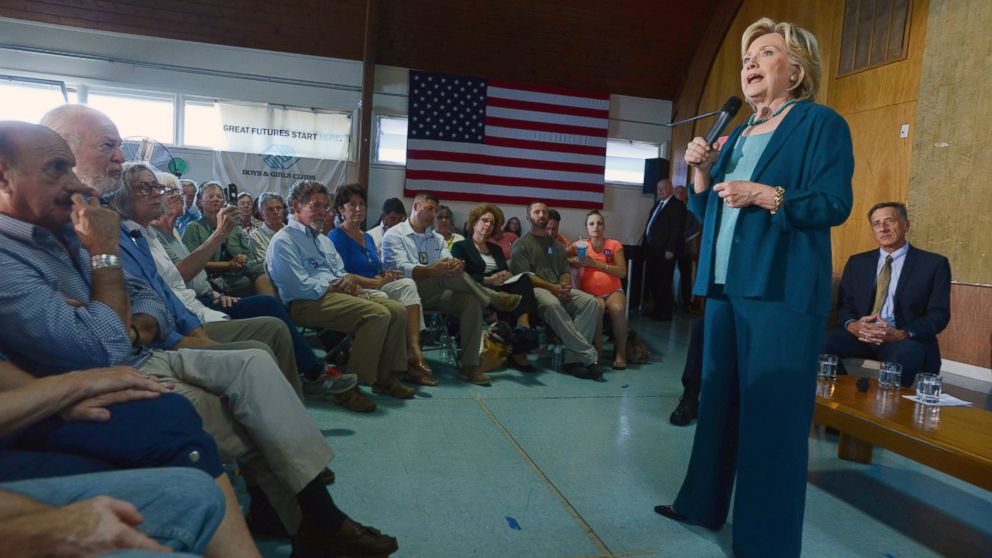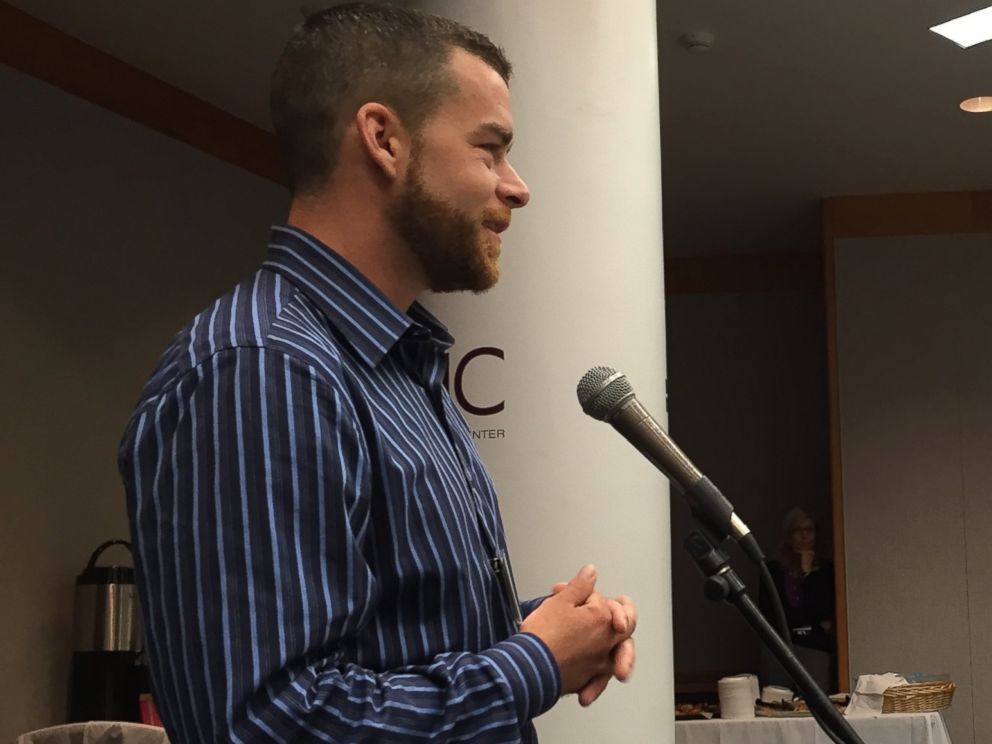New Hampshire's Drug Epidemic Takes Center Stage Before Democratic Debate
In a first, N.H. voters cite drug abuse as their No. 1 issue.

—MANCHESTER, N.H. -- For Tim Soucy, life as a city public health director is filled with reports, statistics and funding battles. Because he works in Manchester, New Hampshire, though, it’s also full of desperate phone calls.
“Everyone here has stories,” he says. “I’ve had folks call me, close friends, people saying, ‘I’ve got my brother in the back of the car and he’s going through withdrawal.’ People who have watched a loved one die in a bathtub before they could get treatment. People who say, ‘I’ve locked my son in the house and I don’t know what to do.”
These are the phone calls he dreads in the middle of the night. And there are lots of them. In 2013, New Hampshire saw 192 overdose deaths, which is expected to double two years later.
Now, as Democratic candidates descend on the Granite State for Saturday’s debate, their hosts are begging them to focus on the drug epidemic that has gripped the state. In a poll conducted by ABC Manchester affiliate WMUR-TV in October, residents named drug abuse the top issue facing New Hampshire, the only time in the past seven years the economy and jobs haven’t occupied the top spot.
ABC News spoke to government officials, health care workers and recovering addicts across the state, piecing together a portrait of what voters are facing, and what measures candidates are considering.
Disturbing trends
New Hampshire is not the only state facing a crisis. From 2002 to 2013, the number of heroin deaths in the United States nearly quadrupled, according to the Centers for Disease Control and Prevention.
Heroin is not the only culprit, either. Seventy-five percent of U.S. heroin addicts have also used prescription opioids. Pain medications like Percocet and Vicodin are highly addictive, and cost several times more than heroin, meaning patients may turn to street drugs when prescriptions run out.
“What is killing more people in New Hampshire isn’t heroin,” though, Timothy Rourke, chairman of Gov. Maggie Hassan’s Commission on Alcohol and Drug Abuse Prevention, says. “It’s fentanyl.”
Fentanyl is a powerful pain reliever up to 100 times more potent than morphine. Its fast-acting sedative effect has led to use as an anesthetic, but also as a popular recreational drug. Law enforcement officials say large quantities are now trafficked from Mexico to New England.
“Narcotics are a really unique commodity,” says Casey Currivan, who is in long-term recovery for poly-substance abuse. “Instead of supply meeting the demand, the supply creates demand.”
Currivan, 41 days sober when he first spoke to ABC News in September, now volunteers at Hope for New Hampshire, a Manchester-based peer recovery center.

Heroin and other opioids “went off like a bomb in New Hampshire,” Currivan says, adding that he has met with wealthy suburban housewives and desperate teens on the run, all struggling to escape the clutches of drugs. “We’re just starting to see the shockwaves of it.”
The state’s youth are more susceptible than most. Ten percent of 18 to 25 year olds have used illicit drugs in the past 30 days, 7.4 percent have suffered from drug dependence this year, and nearly one in five have found themselves abusing alcohol , the highest such numbers in the nation. An economic study by PolEcon Research estimated drug and alcohol misuse cost the state $1.8 billion dollars in 2012, and that was before the crisis had truly exploded.




